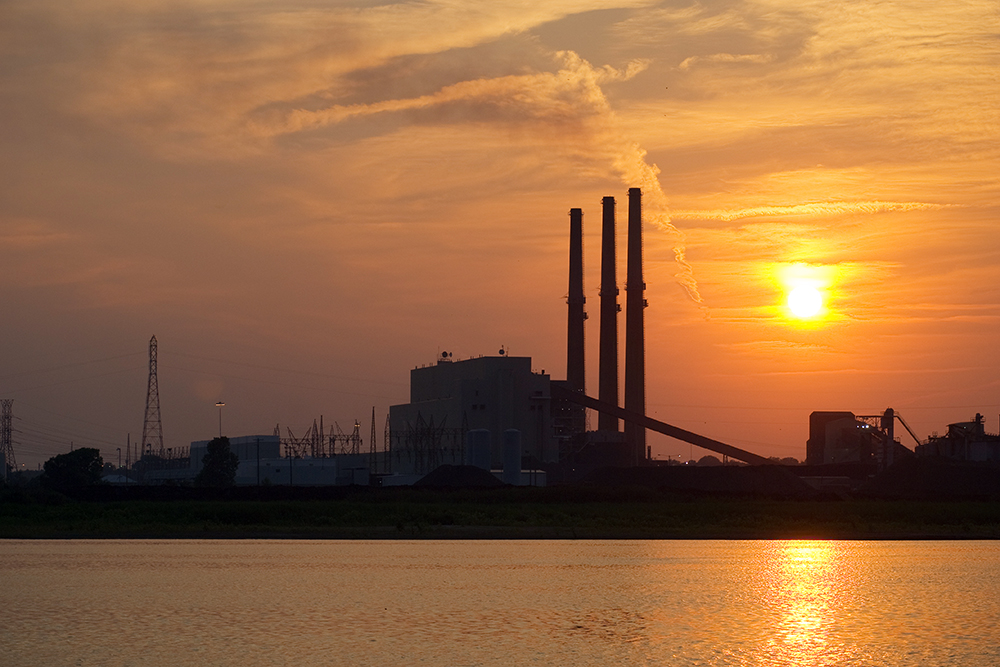The people of Memphis deserve clean air, affordable power bills, and a reliable energy system that doesn’t come at the cost of their health or future. Instead, TVA is pushing to expand the Allen gas plant in Southwest Memphis with six new methane gas-burning turbines. That means more pollution, higher bills, and more risk for the communities that have already been asked to carry too much. Let’s be clear: This is a bad deal. Memphis deserves better.
If these gas turbines are built, they will produce large amounts of air pollution that will cause and worsen serious health problems for nearby residents. Southwest Memphis residents already experience high rates of asthma and other respiratory illnesses, and adding more pollution to the air from burning methane gas will only deepen public health impacts and worsen the climate crisis.
This project is deeply unfair for communities in Southwest Memphis, where residents already carry heavy environmental burdens from the decades of pollution from fossil fuel infrastructure: the Allen coal plant, Valero refinery, Allen gas plant, Southaven gas plant, xAI, and now TVA’s Allen plant gas expansion plan. This is what the continuation of environmental injustice looks like.
TVA claims the gas expansion is necessary to meet electricity demand, but they’ve done a poor job of seriously evaluating other options. They haven’t conducted even basic analysis of how clean alternatives could meet power needs in a way that’s less risky and less harmful. TVA has tried to frame this as a binary choice: either build the new methane gas turbines, or do nothing and risk not meeting demand. But that’s a false choice. In reality, TVA could meet energy needs through a mix of proven, affordable solutions — like solar, wind, battery storage, energy efficiency, and demand reduction programs — that don’t come with decades of pollution and health consequences of burning methane gas.
But TVA is still pouring money into fossil fuel infrastructure that would lock Memphis into another generation of pollution, higher bills, and increased climate risk. At this point, it feels like TVA would rather keep polluting communities than do the work of building a cleaner, more just energy future. This is the same tired playbook: rush the process, sideline the public, and pretend there are no alternatives. That’s not leadership. That’s business as usual — and people are done with it.
It’s not just about pollution — though that alone should be reason enough to stop this. It’s about the massive opportunities that TVA is choosing to ignore. TVA has a long history of underinvesting in energy efficiency — simple, low-cost solutions like sealing air leaks and adding insulation that could make homes across Memphis healthier, safer, and more affordable to live in. These upgrades are especially important for low-income residents, many of whom want to improve their homes but can’t afford to do it on their own. TVA’s programs are often too limited, too complicated, or just not designed to reach the people who need them most. And while TVA has started to show some progress, it’s unacceptable for them to ignore the lowest cost, most immediate way to reduce energy demand while trying to justify building more gas infrastructure. Instead, TVA should be expanding programs that cut energy use and ease strain on the grid because that’s how you lower bills, improve reliability, and reduce pollution without making vulnerable communities pay the price.
Memphis has thousands of megawatts of rooftop solar potential, many times over what TVA says it needs from this gas expansion. That’s power from the sun, right here in the city, with no emissions and no added health risks. Shelby County also has tremendous capacity for utility-scale solar. MLGW’s own studies point to local solar as the smartest and most cost-effective choice for meeting power needs. And wind is already being harnessed just across the state line in Tunica County. Battery energy storage makes renewable energy available around the clock, improves the reliability of the grid, and can help bring the grid back online from a power outage. The tools are here. The technology is proven. The moment is now.
As someone working alongside partners in Memphis who are organizing around this issue, I’m proud to support their leadership. The voices coming out of Southwest Memphis are powerful — and they are calling for what every community deserves: transparency, accountability, and a future built on clean energy, not more pollution.
TVA was created to serve the people of the Tennessee Valley — not corporations, not industry. Its mission was public service. But somewhere along the way, that mission got lost. Now is the time to get back to it.
TVA should invest in the communities that have powered this region for generations — not sideline them. It should make real investments in proven, available clean energy that reduces bills, creates long-term, good-paying local jobs, and keeps the lights on without poisoning the air. Southwest Memphis doesn’t need more pollution. Memphis doesn’t need more excuses. And the people of the Tennessee Valley don’t need another generation locked into dirty energy and economic inequality.
TVA can still choose to lead. If they won’t, they’ll be remembered as the ones who stood in the way. Because the future is clean. The future is just. And the future will be powered by the people.
TVA is accepting public comments on this project until April 28th. Now is the time to speak up. Tell TVA to stop the methane gas expansion at the Allen Plant and invest in a clean energy future built on energy efficiency, solar, wind, battery storage, and demand reduction. Tell TVA to do better because Memphis deserves better — and the Tennessee Valley does, too.
As the decarbonization advocacy coordinator for the Southern Alliance for Clean Energy (SACE), Tracy O’Neill is a passionate advocate for clean energy and community empowerment.
